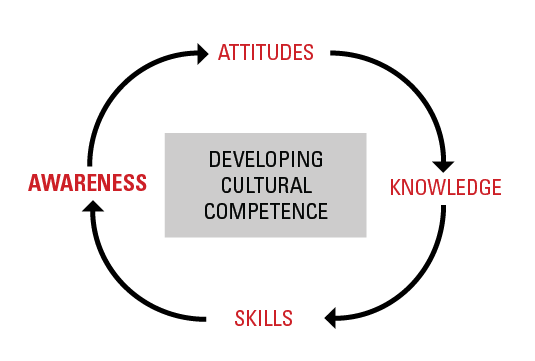Cultural competence is the ability of a person to effectively interact, work, and develop meaningful relationships with people of various cultural backgrounds. Cultural background can include the beliefs, customs, and behaviors of people from various groups. Gaining cultural competence is a lifelong process of increasing self-awareness, developing social skills and behaviors around diversity, and gaining the ability to advocate for others. It goes beyond tolerance, which implies that one is simply willing to overlook differences. Instead, it includes recognizing and respecting diversity through our words and actions in all contexts.
Cultural competence encompasses:

https://extensionpublications.unl.edu/assets/html/g1375/build/g1375.htm
Displaying the cultural competency behaviors of active listening, empathy, and effective engagement can help us to create a welcoming environment and establish the appreciation of similarities and differences among cultures.
Psychologists still know little about what constitutes good treatment for people of diverse cultures. But researchers are getting closer by taking a variety of scientific approaches, including studying cultural adaptations of proven treatments.
Cultural competence benefits schools, universities, individuals, groups, communities and societies. From NC State University.
Wondering how to engage students of vastly different economic, social, racial, and cultural backgrounds in the classroom? Interested in becoming more skilled at communicating across cultures? This collaborative webpage offers resources, strategies and activities to develop intercultural competence.